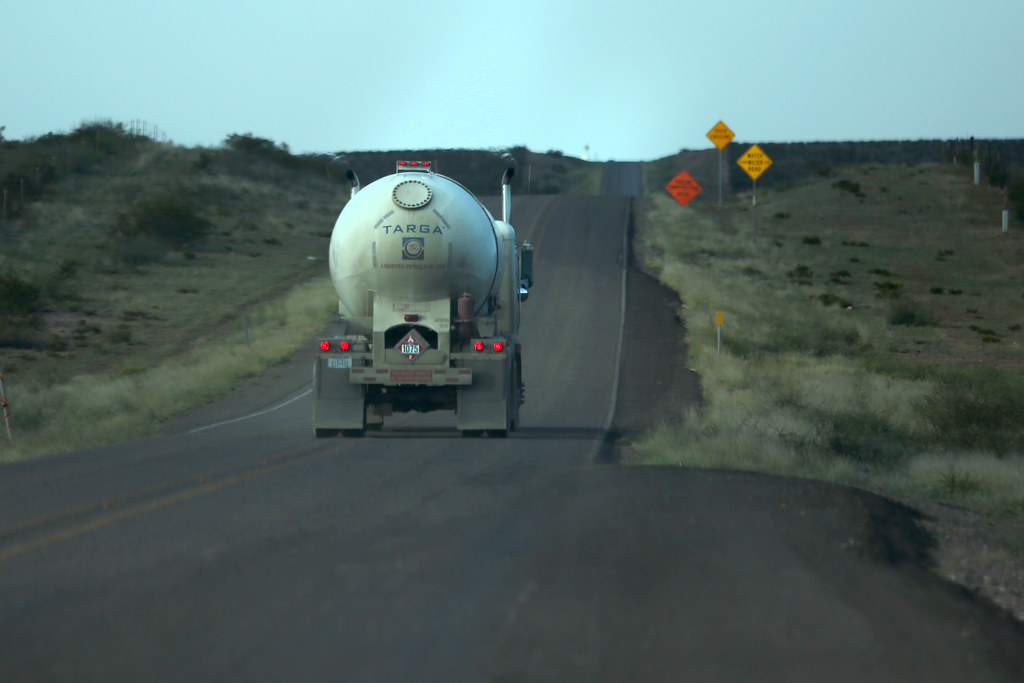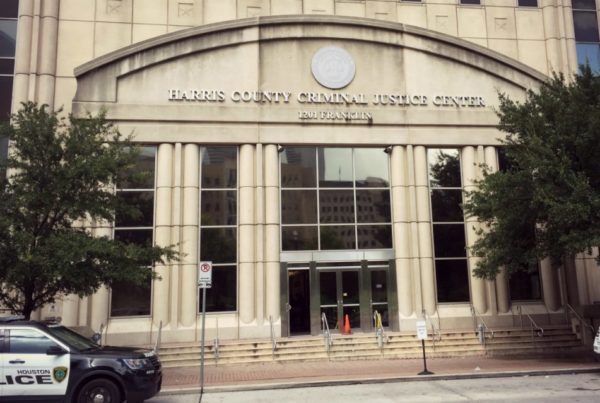Jennifer Green’s family has owned land in Jim Wells County for over thirty years. She and her son live on a 150-acre ranch in Orange Grove, a small, rural community about 40 miles northwest of Corpus Christi.
They share the property with Jennifer’s sister and her kids, as well as her mom and dad. They raise cattle. The kids get to grow up around nature. The property is paid off, and the plan right now is to stay there.
“This is our forever property,” Green said. “It’s willed, you can’t sell it, to ensure that all future generations have a place to stay, no matter what, however far down the line.”
But now, the area around the property is changing, thanks to new neighbors who moved in across the fence line a few years ago. It’s a company called Blackhorn Environmental Services – they run what’s technically called an oil and gas waste stationary treatment facility. That’s a long name for a kind of dump. Trucks bring petroleum waste from across South Texas to the Blackhorn site, where the trash is treated and stored.
When the facility started accepting waste two years ago, Jennifer Green noticed changes immediately.
The lights from the facility made it feel like a “24-hour shopping center” moved in next door. 18-wheelers rolled down the one-lane road in front of the property. And then there’s the smell.
Sometimes the smell is described as sour gas. Other times residents say it smells like mothballs, or some unidentified chemical.
“It smells so bad it makes you sick. It makes you nauseated. [You get] headaches, your nose runs, your eyes run, extreme fatigue,” Green said.
The odors that Green and her family have smelled since the Blackhorn facility started operation can be overwhelming. But even though she and her neighbors smell something almost all the time, they don’t know what it is.
“The only information we have, we have obtained via open records requests via the Railroad Commission,” said Tara Jones, who also lives near the facility with her husband, Calvert.
Through those record requests, they were able to get information about the waste coming into the facility. But the reports left out crucial details, according to the Jones’.
“The description doesn’t tell you it’s this specific chemical, it will tell you ‘tank bottoms’ or ‘contaminated tank bottoms or contaminated soil.’ It doesn’t tell you what it’s contaminated with, it doesn’t tell you what the chemical is,” said Calvert. “So the main concern is we don’t know what we’re smelling.”
Blackhorn representatives didn’t respond to requests for comment for this story. But they’ve previously said on the record that none of their workers have experienced negative health effects at the facility.
Oil and gas waste is known to emit harmful contaminants called volatile organic compounds, which can cause organ failure, neurological problems and cancer. According to Wilma Subra, a Louisiana-based environmentalist and oil and gas regulation expert, the symptoms people report experiencing around the Blackhorn site match up with other disposal pits.
“The headaches, the skin rashes and the sore throat and burning eyes – those are known health symptoms of the volatile organics,” Subra said.
Despite that, oil and gas waste is not regulated as “hazardous” waste – which requires stricter controls. That’s thanks to a carve-out Texas Senator Lloyd Bentsen secured back in 1980 that ensured waste from oil and gas production would be classified as “non-hazardous” – even though it can contain pollutants that can contaminate the air and water. The Blackhorn facility has safeguards in place to prevent that from happening. But if those fail, or if the site is abandoned, it could have serious long-term repercussions.
“Even if you clean up the site, it has the potential for groundwater contamination to be there for many, many, many years,” Subra said.
The two state agencies in charge of regulating the site are the Texas Railroad Commission, and the Texas Commission on Environmental Quality, or TCEQ. The TCEQ has gotten over 230 complaints about the facility in the two years it has been in operation – many of them about odors. On several occasions, state investigators themselves have felt sick near the facility, according to agency documents. The commission is still investigating Blackhorn, which could result in fines or other penalties. Despite that, the site has a “satisfactory” rating from TCEQ, which means it generally complies with environmental regulations. Locals like Calvert Jones are frustrated by the regulatory response.
“The state agencies work for the people of the state of Texas. I should be able to go to the Railroad Commission or the TCEQ, and if I have an issue, they should come in and take care of it,” Jones said.
The Blackhorn site’s future will be decided on Tuesday, when the Railroad Commission is scheduled to decide whether to renew Blackhorn’s operating permit. The Jim Wells County Commissioners Court and the area’s representatives in the Legislature have asked the Railroad Commission to reject the renewal, citing health and safety concerns, although Railroad Commission staff has recommended that the permit get reapproved. If that happens, the Jones’ are prepared to continue the fight in court. The first hearing in a civil suit they filed against Blackhorn is scheduled for October.















